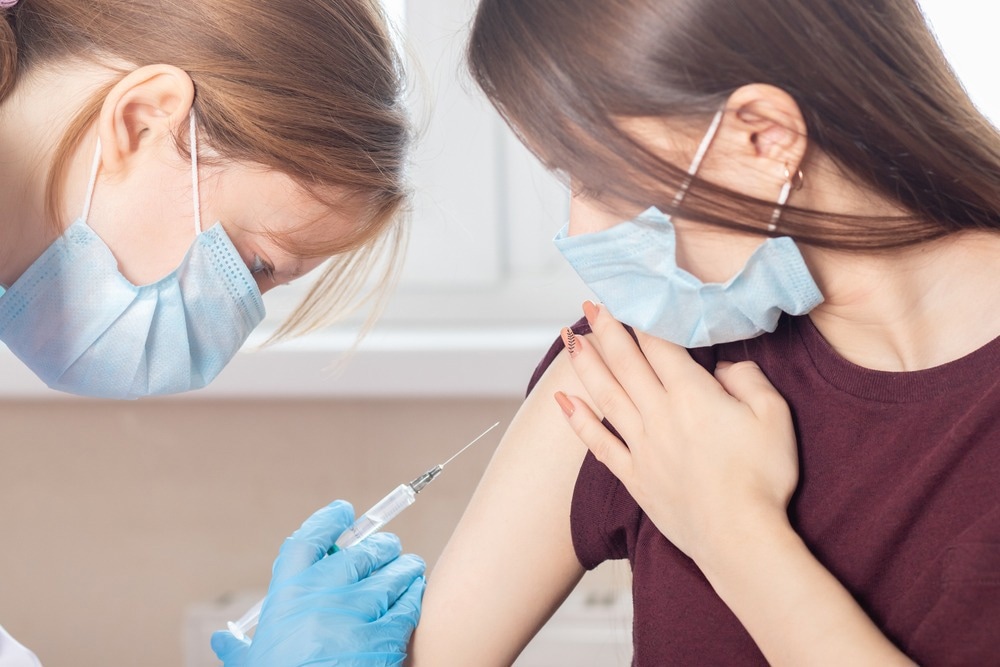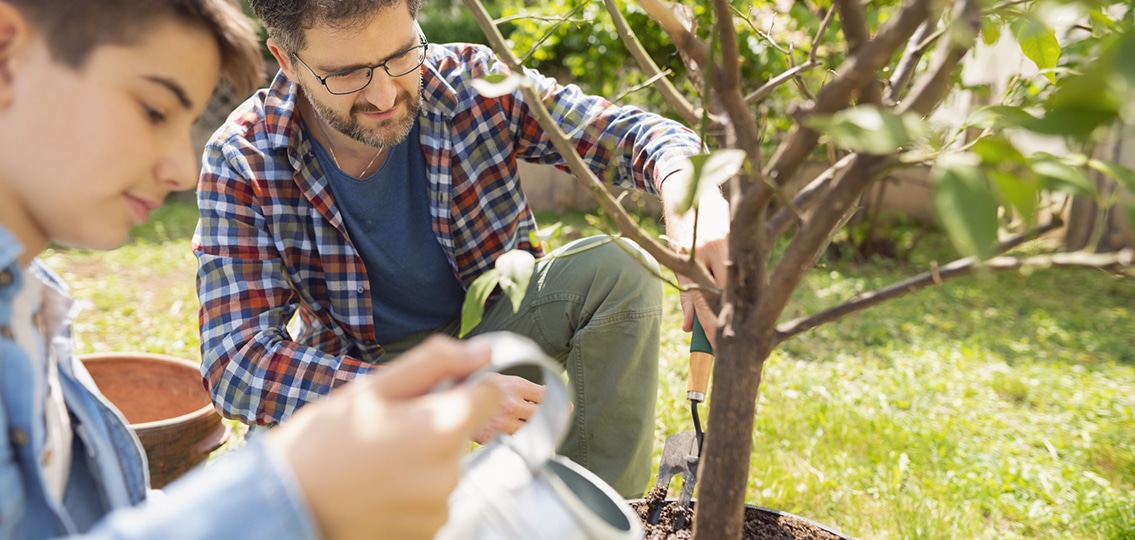After the admission process is done, you’ll switch gears to helping your high schooler prepare for college living: finding the perfect room decor, getting advice about how to pack, and coming to realize that your kid is actually going to manage their life without you right there. That’s when the panic can set in: how is this kid – who you’re pretty sure might mix up dish detergent and laundry detergent – going to handle his or her first, well, whatever??
College students are going to make mistakes, and likely some will be much bigger than using the wrong kind of detergent. Accepting that mistakes are inevitable can be scary for parents, and it’s natural to want to help our kids avoid them.
My colleague and co-author, Dr. Sara Levine, and I are parents of high schoolers and college students. We see the worrisome daily headlines about the multiple crises affecting young people right now. We share your fears.

Reconciling fears for your teen’s future, knowing they will make mistakes
So how do we reconcile our own anxieties for their future with the reality that these are the years when young people are supposed to make mistakes in order to learn and grow and establish their own identities? As experts in young adult physical and mental health, we try to encourage parents to think of themselves like a spotter for a climber: you’re holding the end of the rope or the bottom of the ladder, but your kid is figuring out the next step on their own.
We’d be remiss if we didn’t acknowledge that some mistakes are much more dangerous than others. As physicians, we have both been called on by patients, friends, and family to help a struggling college student when things have gone awry.
So, how do you prepare your kid for a healthy college experience? How do you encourage them to embrace the good kinds of mistakes and minimize the ones with much more serious consequences?
How parents can prepare teens for a healthy college experience
1. Teach them that navigating healthcare is an essential life skill.
For many teenagers their first experience with “adulting” is trying to get their driver’s license and coming face-to-face with the confusion, inefficiency and frustration of the DMV. Their experience with healthcare is unlikely to be any different and the sooner they start learning to navigate this system on their own, the better.
Use the next time you pay a co-pay as an opportunity to explain what a co-pay actually is, demonstrate how to refill a prescription (from calling the prescriber to picking it up at the pharmacy counter), and start having them make their own appointments.
Young adults with chronic or complex healthcare needs may have more experience or need more assistance with these types of tasks, but these are skills that everyone needs. Parents are often concerned about getting health care proxies signed (never a bad idea), but use this shared document as a transition step, and empower your students to begin to manage their health and healthcare on their own.
2. Make sure they know their medical history, medications and allergies
Maybe your child is the one for whom every cold triggers an asthma exacerbation or they are prone to UTIs. They need to be able to communicate this to a healthcare provider on their own, including what treatment has or has not worked for them in the past. Find a way to keep this information easily accessible for them – a shared Google doc, notes list, or screen shot of the basics stored in their phone photos.
If they end up at urgent care for a painful sore throat and can’t reach you, they need to know what they are allergic to – “it starts with the letter A” isn’t going to be enough – and have handy a current list of any active and ongoing prescriptions (names AND doses).
3. Talk to them about their family medical history – especially their family mental health history.
Though it’s a natural instinct to want to shield your kid from things that can be sad or scary, your family medical history is a crucial part of their health journey. There is a strong genetic component to many physical and mental health disorders, and knowing what runs in the family can be both reassuring and preventive.
They might feel better understanding, “my mom told me this is what a panic attack feels like” or “maybe this is depression – like what my sister has.” And they might make healthier decisions if they are aware that “exercise needs to be part of my life – high cholesterol and heart disease run in my family,” or “everyone in my family has struggled with addiction – I need to be mindful of how much I’m drinking” or “I have two cousins who have schizophrenia – I need to stay away from psychoactive substances.”
4. Review how and when to use over-the-counter medications to manage mild illness.
This is surprisingly hard! How many of us just hand our kids something when they aren’t feeling well without telling them what it is or what it’s treating? Do we even know ourselves? Understanding the difference between acetaminophen (Tylenol) and ibuprofen (Advil or Motrin) or an antihistamine versus a decongestant versus a cough suppressant vs an expectorant…it’s complicated!
Teach your kid to read labels and make sure they aren’t doubling up on something when they shouldn’t be. As physicians, we’ve taken more than a handful of calls from students or parents when someone is high as a kite after combining a couple of cough/cold/flu multi-symptom relief medications. Send your kid to school with the things they’ve needed most, and make sure they know what they are and when to use them – and what NOT to combine.
Caraway is an innovative, affordable way that college students can access quality medical care 24/7
5. Teach them about contraception and sexually transmitted infections – or point them toward accurate sources of information.
Whatever your family values are regarding sex, teenagers and young adults need access to medically accurate information. These days many young people rely on TikTok and YouTube – both of which can be full of shocking misinformation and disinformation.
Some colleges have robust reproductive healthcare services available on or near campus, but others don’t. Your daughters AND sons should know what they can access – even if they have no intention of needing it. Whether in college or beyond, understanding contraceptive options may be the single most life-changing health skill they can ever have.
While we are on the topic of sexual health – make sure they understand consent.
This can be harder than it seems, particularly when substance use is involved and inhibitions are relaxed. To be clear, no means no. Period. Full stop. Make sure your sons and daughters understand “affirmative consent” – the idea that not saying no is not the same thing as saying yes.
Talking about sex, particularly in the moment, can feel awkward, but learning to communicate what they like or want to do and what they don’t like or don’t want to do will lead to much healthier, safer, and more enjoyable sexual relationships.
6. Over-communicate about ways to be safe around substances.
For many college students, substance use is socially normalized experimentation, but for others it’s a way to self-medicate and escape from overwhelming feelings including anxiety and depression. Nudge your kid to consider the role substances – alcohol or drugs – may play in their lives.
Some will never touch the stuff. Others need to know – especially if there is a family history of substance use – that now’s the time to learn less risky ways to cope with difficult emotions. Similarly, it’s critical to understand that any type of drug – even “legal” cannabis gummies or “prescription” Xanax – can be contaminated with highly-addictive or lethal substances.
There is no truly safe way to experiment, but there are increasing efforts to make people aware of fentanyl test strips or Naloxone (Narcan) as ways to mitigate opioid-related harm. Unfortunately, so-called “date-rape drugs” (rohypnol and other substances intended to induce amnesia) are notoriously difficult to test for. Teaching your kid to never leave a beverage unattended or leave a friend at a bar or party are two simple acts that can prevent some truly horrible tragedies.
7. Reassure them that it’s normal to feel sad or lonely or overwhelmed at times.
Social media has given all of us the impression that other people are perpetually in a state of bliss, having the best time of their lives, and are surrounded by adoring friends and family and cute pets. We’re exaggerating here, but the implied message is unrelenting – there is something wrong with you if you are sad or lonely or overwhelmed. Young adults need to know that not only is this simply not true, but learning ways to cope with these feelings until they pass can be life-saving.
Encourage them to consider what they might do when, not if, these feelings do come up. For some this may be developing a mindfulness practice, for others it may be listening to or playing music, and for many this may be working with a therapist or psychiatrist.
Learning what emotion regulation skills work for you is arguably harder, and more important, than mastering calculus proofs or writing a stellar essay. Communicate that you value this learning as much as the academic kind. And above all, remind them that though these hard moments feel like they will last forever, they won’t. And though they may feel alone, they aren’t. There are many people out there who can and want to support them through these times.
8. Teach them it is okay to make mistakes.
This lesson is worth repeating. The current college application process is radically different from what prior generations experienced. It’s not uncommon for us to hear middle school students express worry about what they will put on the Common App. When the stakes feel so high, the idea of making a mistake – getting a bad grade, not making the right team, being passed over for a coveted summer internship – feels terrifying. And, when the outcomes narrow to perfection or failure, you’d better only choose things that ensure success.
Of course, adults know that life does not work this way, but the adolescent brain struggles to see the long-term value of adversity. Share some of the mistakes you made during your own young adult years that felt hard in the moment, but led to emotional or intellectual growth. Reassure them that mistakes are unavoidable if you are challenging yourself and that you love them no matter what the outcome is.
9. Encourage healthy habits, but be realistic.
Here’s where we have to pick our battles. Sure, we want every student to eat a healthy, balanced diet, exercise regularly, get fresh air, plenty of sleep, call home on a regular basis, achieve a work-life balance, but let’s be real; it’s not going to all happen, and it’s certainly not going to all happen at once!
Unless they slept through every health class and tuned out every bit of advice that you’ve told them up through high school, they already know they should do all these things to stay healthy. But “healthy” is an abstract term to most 18-24 year olds. Now that they are on their own, they get to experiment with what makes them feel better and what doesn’t.
Of course, it’s impossible not to give advice when the solution seems obvious – take a walk with a friend if you’re lonely, get more sleep if you’re getting sick all the time, get some exercise if you’re feeling sluggish. But, a good rule of thumb if you’re not worried that they are truly unwell (physically or mentally) is to suggest something only once and see what happens. They are listening a lot more than you think they are.
10. Remind them that there are many ways to access help.
Knowing when and whom to ask for help is part of growing up. Whether it’s a writing tutor or resident advisor, there are people around whose job is entirely to help! Remind your son or daughter they are not supposed to be able to do everything on their own, and for many things they actually shouldn’t.
This is especially true for safety and healthcare. Encourage them to learn about the campus safety resources: blue lights, walking escort services, and campus transportation. They are not the only ones who may need a plan for walking home from evening activities after dark.
Likewise, a few minutes on the student health website BEFORE they land on campus will help your kid know in advance what services are available, and how and when they can access them. More colleges are offering some services via telehealth, and some students can access their healthcare at home via telehealth as well.
This is especially important for mental health care. When a student is already feeling overwhelmed or sad or exhausted, it’s going to be even harder for them to motivate themselves to first figure out what’s available and then to actually access it. If your kid is one of the many who have struggled in the past, it’s especially important to know if they will be continuing care with a therapist and/or psychiatrist from home, or if they need to set up care on or near campus. Don’t wait until something comes up to figure this out.
College can be hard. Healthcare can be harder. But by preparing your kid ahead of time, you can make sure it doesn’t get in the way of college also being the fun, exciting, and all-around amazing experience it should be. Even when you’ve given them all of the advice and tools, you’ll still likely get a late night phone call from a sick kid looking for comfort and reminders of that advice.
Fortunately, support is available, whether it’s their healthcare provider at home, services on campus, or a telehealth platform like Caraway*. The key is helping your kid learn how to navigate life on their own, being there to help when they need it, and cheering them on – even when it’s from a distance.
More Great Reading:
Here Are the 33 Life Skills Your Teen Needs to Know to “Adult”
*Caraway is the only care platform tailored for Gen Z, providing 24/7 access to mental, physical and reproductive health care – all in one place. With Caraway, students and their peers have instant access to our Care Team of licensed physicians, therapists, nurse practitioners, care coaches and health advisors so they can get answers immediately without worrying about wait times, and avoiding the all-too-common health anxiety spiral.
They get trusted care, and you get peace of mind. Caraway’s healthcare services are available via its mobile app in the Apple App Store and on Google Play. For more information, visit Caraway.health and follow on LinkedIn, Twitter, Instagram and TikTok.
About the Authors:
Cheryl Baggeroer, MD is the Chief Health Officer at Caraway. Dr. Baggeroer is a board-certified psychiatrist and with expertise in women’s mental health across the lifespan and integrated care models.
Sara Levine, MD, MPH is the Medical Director of Adolescent Medicine at Caraway. Dr. Levine is board-certified in the subspecialty of adolescent medicine and has been taking care of adolescents and young adults in private practice for 15 years.

 PARENTING TIPS
PARENTING TIPS PREGNANCY
PREGNANCY BABY CARE
BABY CARE TODDLERS
TODDLERS TEENS
TEENS HEALTH CARE
HEALTH CARE ACTIVITIES & CRAFTS
ACTIVITIES & CRAFTS


